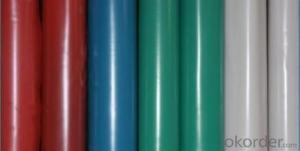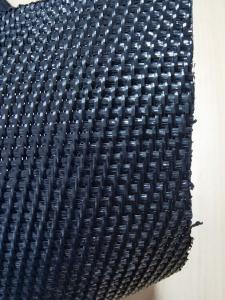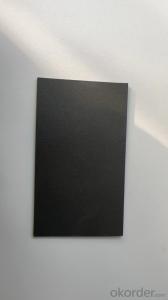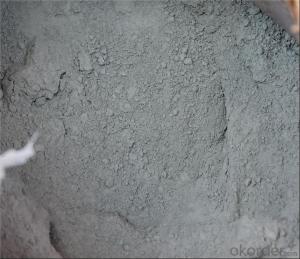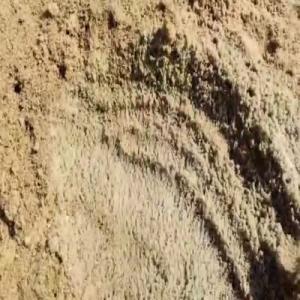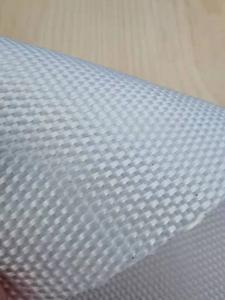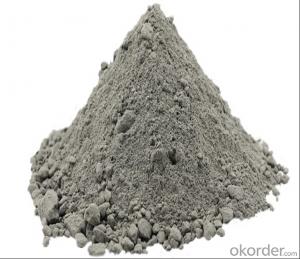PVC Waterproof Membrance for Roofing and Underground
- Loading Port:
- Tianjin
- Payment Terms:
- TT or LC
- Min Order Qty:
- 10000 m²
- Supply Capability:
- 15000000 m²/month
OKorder Service Pledge
OKorder Financial Service
You Might Also Like
Quick Details
Type: | Waterproof Membrane | Place of Origin: | Shandong, China (Mainland) | Brand Name: | CMAX |
Model Number: | Excaid-D | thickness:1.2mm,1.5mm,2.0mm: | Raw mateiral:EPDM rubber | width:1200mm: | Standard:GB18173.1--2006 |
length:20m: | Tear strength:>=25KN/m | break tensile strength >=7.5MPa: | waterproof:0.3MPa,30min | break elongation:>=450%: | usage:building waterproof |
Packaging & Delivery
Packaging Details: | PE membrane and pallet |
Delivery Detail: | within 20 days after receiving downpayment |
Specifications
1.ISO9001,ISO14001
2.Top 3 of Chinese waterproof materials manufacturer
3.Customize product property
4.System accessories
Technical Data:
Tensile Strength N/CM | Normal temperature: ≥60 ; 60°C: ≥30 |
Breaking Elongation % | Normal temperature:≥400 ; -20°C: ≥10 |
Tear Resistance N | ≥20 |
Impermeability, 30 min no leakage | 0.3Mpa |
Low Temperature Bending °C | ≥ -20 |
Heating Shrinking mm | Extension: ≥2 Shrink:≥4 |
Heat Resistance (80°C×168h) | Tensile Strength % : ≥80 ; Keeping rate of adhesive breaking:≥70 |
Alkali resistance (10% ca (oh)2 solution,normal temperature ×168h)) | Tensile Strength % : ≥80 ; Keeping rate of adhesive breaking:≥80 |
Synthetic aging | Tensile Strength % : ≥80 ; Keeping rate of adhesive breaking:≥80
|
FAQ
1.Can you offer free sample ?
Yes , we can offer free sample .
2.What's payment ?
TT or LC both ok .
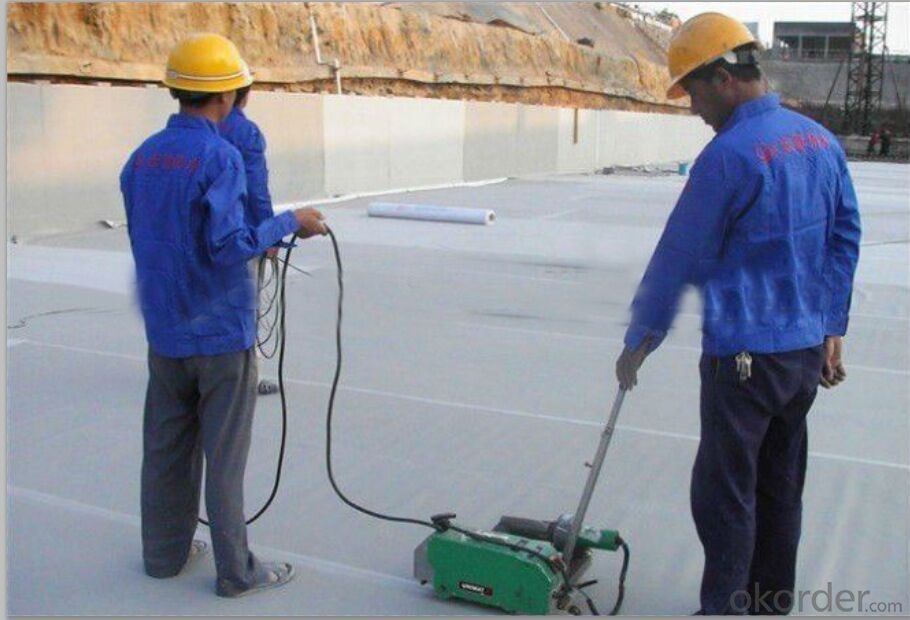
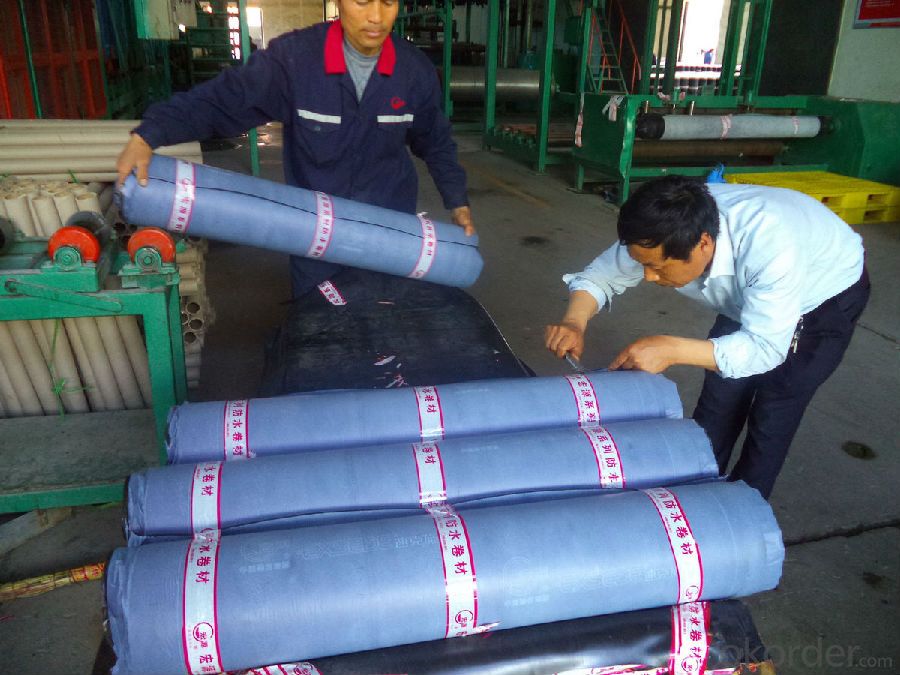
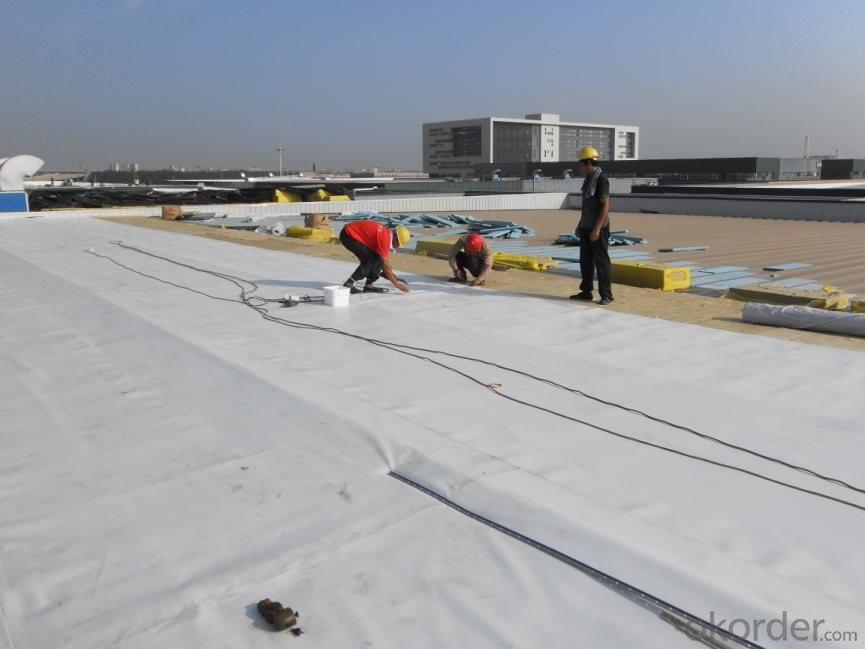
- Q:Can waterproofing membranes be used on concrete dams?
- Yes, waterproofing membranes can be used on concrete dams. In fact, they are commonly used in the construction and maintenance of concrete dams to prevent water leakage and seepage. Waterproofing membranes are designed to create a barrier that is resistant to water penetration, protecting the concrete surface of the dam from damage caused by water. These membranes can be applied to both the interior and exterior surfaces of the dam, providing a reliable and long-lasting solution for waterproofing. Additionally, waterproofing membranes can also help to mitigate the risk of waterborne deterioration, such as freeze-thaw damage and corrosion of reinforcement, thereby extending the lifespan of the concrete dam.
- Q:Can a waterproofing membrane be used in saunas?
- Yes, a waterproofing membrane can be used in saunas. Saunas are high-moisture environments, and the use of a waterproofing membrane can help prevent water damage and protect the underlying structure from moisture penetration. The membrane acts as a barrier, preventing water from seeping through and causing potential issues such as mold, mildew, and rot. It is important to choose a waterproofing membrane that is specifically designed for high-moisture areas and can withstand the extreme heat and humidity of a sauna. Proper installation and adherence to manufacturer guidelines are also crucial to ensure the effectiveness and longevity of the waterproofing membrane in a sauna setting.
- Q:Can a waterproofing membrane be used for food processing facilities?
- Indeed, food processing facilities can utilize waterproofing membranes. These membranes are widely employed across various industries, including food processing, to safeguard against water intrusion and moisture-related harm. To safeguard the building structure, waterproofing membranes can be installed on floors, walls, and ceilings in food processing facilities, where maintaining cleanliness and hygiene is of paramount importance. By creating an effective barrier, waterproofing membranes effectively seal surfaces, thwarting the proliferation of mold, mildew, and bacteria that could potentially contaminate food products. Furthermore, they aid in upholding a clean and dry environment, thereby diminishing the risk of slips, falls, and accidents that could result from wet surfaces. Water-intensive processes such as cleaning, washing, and sanitizing are prevalent in food processing facilities, underscoring the need for a dependable waterproofing system. Additionally, waterproofing membranes can exhibit resistance to chemicals, oils, and other substances commonly utilized in food processing, thereby ensuring longevity and protection. It is essential to emphasize that when selecting a waterproofing membrane for a food processing facility, adherence to industry standards and regulations is imperative. The chosen membrane must be food-grade and possess certification ensuring its safety during contact with food products, thus averting any potential contamination concerns. Ultimately, the implementation of a waterproofing membrane within food processing facilities is instrumental in preserving hygienic conditions, fortifying the building structure, and securing compliance with health and safety regulations.
- Q:Can a waterproofing membrane withstand heavy rain or water pressure?
- Yes, a waterproofing membrane is designed to withstand heavy rain or water pressure. The purpose of a waterproofing membrane is to create a barrier that prevents water from penetrating through a structure or surface. These membranes are typically made with materials such as rubberized asphalt, PVC, or EPDM (ethylene propylene diene monomer), which are highly resistant to water and can effectively withstand heavy rain or water pressure. Additionally, these membranes are often reinforced with layers or fabrics to provide added strength and durability. Therefore, when properly installed and maintained, a waterproofing membrane can effectively withstand heavy rain or water pressure, providing reliable protection against water damage.
- Q:Does a waterproofing membrane require any protective coatings or sealants?
- In order to enhance its performance and durability, a waterproofing membrane typically needs some form of protective coatings or sealants. While the membrane itself provides waterproofing to some extent, it may not be enough to withstand all environmental conditions or potential damage. To create an extra barrier against water intrusion, UV radiation, mechanical stress, and chemical exposure, it is advisable to apply protective coatings or sealants on top of the membrane. These coatings or sealants also offer additional flexibility, strength, and protection against wear and tear. To determine the suitable type of coating or sealant for the specific membrane and project requirements, it is essential to seek advice from a professional waterproofing specialist.
- Q:Can a waterproofing membrane be used in areas with extreme temperatures?
- Yes, a waterproofing membrane can be used in areas with extreme temperatures. Many waterproofing membranes are designed to withstand a wide range of temperatures, from extremely hot to extremely cold. These membranes are made from materials that are resistant to cracking, melting, or becoming brittle in extreme temperatures. Additionally, some waterproofing membranes are specifically engineered for use in areas with extreme temperatures, such as those found in arctic or desert environments. It is important to choose a waterproofing membrane that is suitable for the specific temperature range of the area in which it will be used to ensure its effectiveness and longevity.
- Q:Can a waterproofing membrane be used on adobe block surfaces?
- Indeed, adobe block surfaces can be treated with a waterproofing membrane. These blocks, composed of a blend of clay, sand, and straw, are prone to water damage. By applying a waterproofing membrane, the infiltration of water can be prevented, thus safeguarding the adobe blocks against various moisture-related problems like cracking, erosion, or mold formation. It is essential to verify that the waterproofing membrane is suitable for adobe surfaces and adhere to the manufacturer's instructions for application. Furthermore, prior to applying the membrane, it is vital to adequately prepare the surface and address any preexisting damages to ensure optimal performance.
- Q:Can a waterproofing membrane be used on different types of surfaces, such as concrete, wood, or metal?
- Yes, a waterproofing membrane can be used on different types of surfaces such as concrete, wood, or metal. Waterproofing membranes are designed to create a barrier that prevents water from penetrating the surface and causing damage. They are versatile and can adhere to various materials, making them suitable for different applications. For concrete surfaces, a waterproofing membrane can be applied to protect against water intrusion and to prevent moisture-related issues such as cracks, corrosion, or mold growth. It can be used on concrete foundations, basements, or retaining walls to ensure they remain dry and structurally sound. When it comes to wood, a waterproofing membrane acts as a protective layer that prevents water absorption, warping, rotting, or decay. It can be applied to exterior surfaces like decks, balconies, or fences to enhance their lifespan and maintain their integrity. In the case of metal surfaces, a waterproofing membrane can be used to prevent rusting and corrosion caused by water exposure. It creates a barrier that seals out moisture, protecting metal roofs, gutters, or other metal structures from water damage. It is important to note that different types of waterproofing membranes may be more suitable for specific surfaces. For example, liquid-applied membranes can be easily applied on irregular surfaces like concrete, while sheet membranes may be more appropriate for flat or smooth surfaces. It is advisable to consult with a professional or manufacturer to determine the most suitable waterproofing membrane for a specific surface and application.
- Q:Can a waterproofing membrane be used for residential swimming pools?
- Indeed, residential swimming pools can benefit from the use of a waterproofing membrane. These membranes are frequently employed in construction to safeguard against water infiltration and can be utilized on diverse surfaces including concrete, tile, and metal. By forming a barrier, they effectively prevent water from permeating the pool structure, thereby preserving its integrity and averting leaks. Furthermore, waterproofing membranes afford protection against other types of harm such as corrosion and deterioration resulting from chemicals or adverse weather conditions. Consequently, it is crucial to choose a top-notch waterproofing membrane specifically designed for swimming pool applications in order to guarantee long-lasting safeguarding and durability.
- Q:Are waterproofing membranes suitable for underground parking garages?
- Yes, waterproofing membranes are suitable for underground parking garages. Underground parking garages are constantly exposed to groundwater and moisture, which can lead to water infiltration and damage to the structure. Waterproofing membranes provide an effective solution to prevent water penetration and protect the concrete structure from deterioration. Waterproofing membranes are designed to create a barrier against water and moisture, preventing them from entering the garage. These membranes are typically applied to the exterior walls, foundation, and floor slab of the parking garage. They are made of durable materials such as modified bitumen, polyurethane, or rubberized asphalt, which can withstand the harsh conditions of underground environments. By installing waterproofing membranes in underground parking garages, the risk of water damage, such as concrete cracking, corrosion of reinforcement steel, and mold growth, is significantly reduced. The membranes act as a protective layer, ensuring the longevity and structural integrity of the parking garage. Furthermore, waterproofing membranes can also help in minimizing the potential for vapor transmission, which can lead to condensation and humidity issues inside the parking garage. This is especially important for underground parking garages located in regions with high water tables or areas prone to heavy rainfall. Overall, waterproofing membranes are an essential component in the construction or renovation of underground parking garages. They provide a reliable and long-lasting solution to protect the structure from water infiltration, ensuring the safety and durability of the parking facility.
1. Manufacturer Overview |
|
|---|---|
| Location | |
| Year Established | |
| Annual Output Value | |
| Main Markets | |
| Company Certifications | |
2. Manufacturer Certificates |
|
|---|---|
| a) Certification Name | |
| Range | |
| Reference | |
| Validity Period | |
3. Manufacturer Capability |
|
|---|---|
| a)Trade Capacity | |
| Nearest Port | |
| Export Percentage | |
| No.of Employees in Trade Department | |
| Language Spoken: | |
| b)Factory Information | |
| Factory Size: | |
| No. of Production Lines | |
| Contract Manufacturing | |
| Product Price Range | |
Send your message to us
PVC Waterproof Membrance for Roofing and Underground
- Loading Port:
- Tianjin
- Payment Terms:
- TT or LC
- Min Order Qty:
- 10000 m²
- Supply Capability:
- 15000000 m²/month
OKorder Service Pledge
OKorder Financial Service
Similar products
New products
Hot products
Hot Searches
Related keywords
